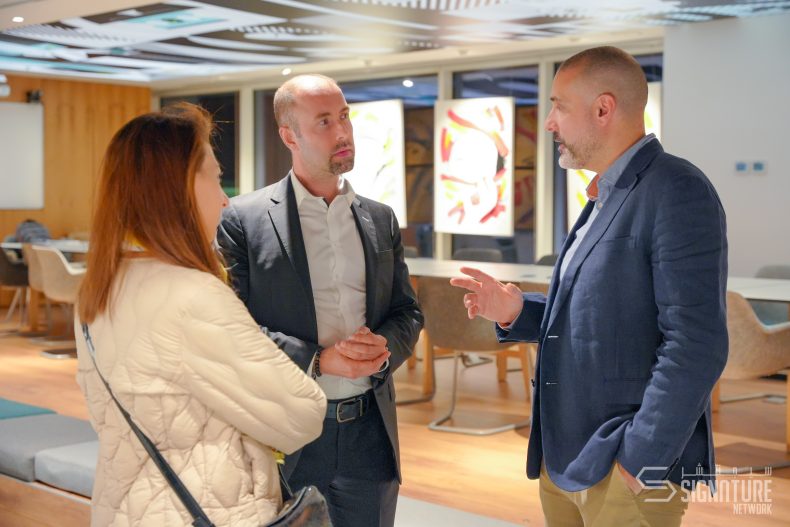
Working in the Middle East can be a rewarding experience: growing economies, dynamic business environments, high-level projects, and often significant cross-cultural teams. However, success doesn’t just come from technical skill or business savvy, cultural adaptation is crucial. Westerners often assume certain norms that don’t translate neatly, and that leads to miscommunication, frustration, or even souring relationships. This article explores key elements of Middle Eastern work culture, common pitfalls for Westerners, and practical tips to adapt. Throughout this piece, are examples and case studies that will illustrate both challenges and strategies for adaptation.
What You’ll Find Different — Key Cultural Differences
Hierarchy, Respect & Authority
Decision-making tends to be more top-down. Seniority, age, and position carry weight. Even if a manager asks for input, final decisions often rest with the senior person. Titles matter. Using proper titles (Mr./Ms./Dr./Sheikh etc.) and last names is common in formal settings. Informality may be acceptable later, but starting formally is safer. In practice, Westerners accustomed to flatter hierarchies might feel constrained. However, respecting authority is not a barrier to contribution, it simply requires framing ideas carefully. Instead of directly challenging a senior, framing suggestions as respectful alternatives or phrasing ideas as ‘perhaps we can also consider’ can make a big difference.
Communication Style
Indirectness is more common. Rather than saying ‘no,’ responses may be ambiguous to preserve harmony or avoid confrontation. Criticism is often delivered more gently or in private. Establishing relationships often comes before business. Conversations at the start of meetings often include non-business topics such as family, weather, or well-being. Jumping directly into business may be seen as rude.
For Westerners, who may see efficiency as paramount, it is important to understand that relationship-building is not wasted time. It is the foundation of trust. A meeting that spends the first twenty minutes discussing family may still be considered productive, because it lays the groundwork for smoother negotiations later.
Time & Pace
Meetings may start late; being ‘on time’ by Western standards doesn’t always translate the same way. The pace of decision-making can be slower, as approvals may travel up a chain, and stakeholders might be many. Expect consultation, negotiation, and even delays. Religious observances such as prayer times, Ramadan, or Eid holidays can also impact scheduling and productivity. This doesn’t mean that time is not valued. Instead, it reflects a different cultural relationship with time. Westerners often see time as linear, while in the Middle East, time can be seen as more fluid. Adapting requires patience and planning buffers into schedules.
Workweek, Holidays & Daily Rhythm
Weekend days are different: many countries have their workweek from Sunday to Thursday rather than Monday to Friday. Fridays often include prayer services, and many businesses are closed or working half-days on Fridays. During Ramadan, working hours are reduced, fasting impacts energy and productivity, and meeting schedules shift. It helps to adjust expectations and workflows around these changes. For example, a Western professional might be surprised to find government offices or banks closed on Fridays. Planning financial or legal matters should account for these differences. Similarly, during Ramadan, it is respectful not to eat or drink in public during fasting hours, even for non-Muslims.
Religious & Cultural Etiquette
Islam plays a central role: prayer times, modesty norms, gender interactions, and religious holidays shape daily life. You may need to pause for prayers, dressing conservatively is recommended in many settings. Avoid showing the sole of the foot or using the left hand for certain exchanges, as these can be interpreted as disrespectful. Understanding gender norms is also critical. While many workplaces today are mixed, traditions vary by country and industry. In conservative environments, physical contact such as handshakes may not always be welcomed between genders. A safe approach is to wait until a colleague extends their hand first.
Business Attire & Appearance
Dress modestly and professionally. Even if local dress such as the kandura in the UAE is common among locals, foreigners are expected to wear conservative business attire: long pants, modest dresses or shirts, and minimal revealing clothing. Clean and well-groomed appearance is valued, and how you present yourself can affect impressions even before you speak. This does not mean blending in completely with local dress codes, but rather showing cultural respect. A suit and tie or business dress will often be appropriate, especially in formal business settings or high-level meetings.

Practical Adaptations: What Westerners Should Do
When working in the Middle East, practical adaptation strategies include building strong personal relationships, using polite and indirect communication, respecting hierarchy, being flexible with time, adjusting to different workweeks, and dressing conservatively. For example, starting meetings with small talk about family and well-being builds trust. Being punctual shows professionalism, but it is equally important to remain patient if others are delayed. Avoiding confrontational refusals and instead using softer language reduces the risk of misunderstandings. Other useful strategies include learning a few Arabic greetings, which shows effort and respect, and demonstrating awareness of Islamic practices, such as wishing colleagues well during Ramadan or Eid. These gestures go a long way in building rapport.
Common Mistakes to Watch Out For
Western professionals often assume that directness is always valued, but in the Middle East it can come across as rude. Another common mistake is underestimating the importance of patience, pressing too hard for quick decisions may backfire. Failing to respect religious observances or neglecting modest dress codes can also cause offense. Ignoring hierarchy by skipping formalities or speaking casually with senior figures without protocol is another pitfall. Additionally, assuming that practices are uniform across the region can be misleading. For instance, business culture in Dubai is more cosmopolitan, while in Saudi Arabia, certain traditions may be more strictly observed. Adapting requires sensitivity to local variations.
Case Examples & Scenarios
Consider a scenario where you schedule a morning meeting during Ramadan. Colleagues may arrive late or appear tired, as fasting affects energy levels. To avoid this, confirm timings in advance and offer flexibility. Another example is using first names with senior managers without invitation. This can appear disrespectful. Always begin with titles until invited to be informal. Another scenario might involve a business lunch invitation. During Ramadan, meals are shifted to after sunset, and alcohol is typically not served. Understanding these practices allows you to navigate social settings without embarrassment. Similarly, when offered Arabic coffee or dates, accepting them is a sign of respect for hospitality traditions.
Benefits of Adapting
Westerners who adapt to Middle Eastern cultural norms experience stronger trust, better negotiation outcomes, and fewer misunderstandings. Adapting improves reputation as someone who is culturally aware and respectful, which is valuable not only for immediate projects but also for long-term career growth in the region. Moreover, cultural adaptability signals emotional intelligence, a trait increasingly valued by employers. It demonstrates not just tolerance but appreciation of diversity, which can open doors to international leadership roles and partnerships.
Challenges & What to Balance
Adapting is not always easy. Westerners may struggle to balance authenticity with cultural sensitivity. It is important to remain yourself while showing flexibility. Another challenge is avoiding over-generalization. The Middle East is diverse, UAE culture differs from Saudi Arabia, Qatar, or Egypt. Even within a country, urban and rural areas can vary significantly. Speed of business is another issue, Westerners often want quick results, but local processes may be slower and involve wider consultation. Gender norms in some workplaces may also require extra sensitivity. By preparing mentally for these differences, professionals can reduce frustration and adapt more smoothly.
Advice for Preparation & Onboarding
Before working in the Middle East, research the specific country’s culture, language, holidays, and work norms. Seek guidance from mentors or local team members and take advantage of cultural orientation programs if offered. Flexibility in scheduling and expectations will go a long way. Being proactive in understanding etiquette, from prayer times to dress codes, signals professionalism and respect. Reading literature on intercultural communication, attending workshops, or even engaging in basic Arabic lessons can provide practical advantages. Many multinational companies offer cultural training sessions, and participating in these can make the adjustment period shorter and smoother.

Conclusion
Technical expertise is only part of the equation for Westerners working in the Middle East. Cultural intelligence, understanding hierarchy, religious norms, communication styles, and workplace etiquette, is essential. Adapting does not mean losing your identity, but expanding your ability to work effectively in a different environment. By showing respect, patience, and flexibility, Westerners can not only avoid cultural pitfalls but also build stronger networks and achieve greater success in the region. Ultimately, those who embrace adaptation will find themselves not only more effective in business, but also enriched personally by meaningful cross-cultural experiences.
Written by Roaa Abdelrahman
Source:
- How to Adapt to the Work Culture in the Middle East – Bayt.com
- UAE Business Culture: 10 Things You Need to Know – RemoFirst
- Navigating Cultural Sensitivities in Middle Eastern Recruitment – Quest Search and Selection



